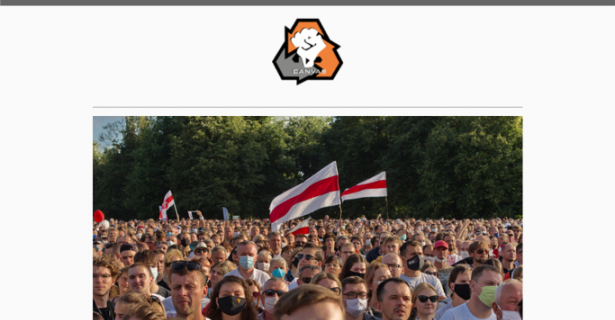Working with CANVAS, a non-violence training center based in Serbia, has given me the opportunity to work on a breadth of issues that relate to activism in the world today, while understanding the impact of the pandemic. Every week, I work on reports that discuss current human rights abuses and protests around the world. Often, I am given the opportunity to help with some of CANVAS’ ongoing projects in various parts of the world, and I learn how their activities have changed as a result of COVID-19.
Each week, the other interns and I work on a report that compiles news on human rights, protests, and activism from around the world. I have followed the economic crisis, government protests, and the use of force to quell protests in Zimbabwe. I have followed the steadily growing authoritarian policies of Beijing in Hong Kong. I followed attacks on press freedom in the the Philippines, Malaysia, and Cambodia. In many ways, the pandemic has opened up opportunities for authoritarian governments to strengthen their hold on their populations; just a couple of weeks ago, in the Philippines, the government imposed an anti-terror law, which human rights groups say can be used to jail dissidents, similar to Hong Kong’s new security law. During a pandemic, authoritarian leaders justify their policies in the name of public health. Yet, every week, I am also reminded that citizens around the world arecontinuously fighting for their rights. In the U.S., the people are protesting for racial equality; in Bolivia, the people are protesting the governments’ postponing of elections; in Belarus, the people are protesting their president’s sixth term. In spite of lockdowns, people across the world still get out to fight for their rights. This is the most important lesson I have learned this summer.
I have also witnessed the effects of the pandemic on activism when I help with CANVAS’ ongoing projects. CANVAS trains activists across the globe in non-violent tactics, and as a result of the pandemic, they have had to adjust the way they train and interact with their trainees. Technology has become increasingly important, both for CANVAS and for activists across the world. For example, I learned about activist groups in South East Asia that have been increasing their digital capabilities to spread information and build networks with other activists online. Reaching out and connecting with people across the internet is becoming increasingly essential to build a movement.
Finally, I have had the opportunity to help organize the CANVAS Summer Academy, which I will explore in greater depth during my next blog post. In the meantime, I wanted to point out one of its best aspects; as it was online, it created a learning space for activists that was quite unique, as it brought together activists from all across the world and from different types of movements. This shows that even though the pandemic has created many challenges for people, there are also opportunities.

